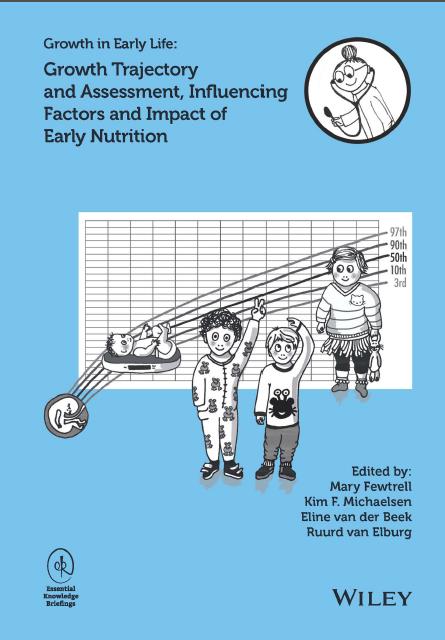Nutritional programming refers to the idea that the nutrition that you receive during early life affects your health in later life, including your risk for non-communicable disease (NCD).1Hanley, et al. Br J Nutr. Published on 2010;104, pp S1S25 doi: 10.1017/S0007114510003338 This early period in life, from conception to the age of two years, is also known as the first 1000 days, and is a period of tremendous growth and development.2Why 1,000 days, Published on 2017 http://thousanddays.org/

During this critical period our all of our organs and tissues are being formed and educated, setting the foundation for our lifelong health. Adequate nutrition during the first 1000 days – from maternal health and nutrition status during pregnancy to good infant and child nutrition post birth – is therefore one of the fundamental prerequisites for survival, growth, optimal development and lifelong health.3Why 1,000 days, Published on 2017 http://thousanddays.org/,4Wrottesley, et al. J Dev Origins Health Dis. Published on 2016;7:144-62 ,5Hanson, et al. Clin Obst & Gynae. Published on 2015 ;29:24-31
Meeting specific nutritional needs is especially important for infants with suboptimal foetal growth and development who may have a higher need for optimal nutritional support compared with healthy term-born infants.6Wrottesley, Roseboom, et al. EARLY HUM DEV. Published on 2016;82:485-91
Learn more about the important early growth journey taken during the first 1000 days of life by downloading your personal copy of ‘The Growth Book’ for free here.
Find out what the experts say about the importance of quality nutrition during the first 1000 days of life, and how early optimal growth and body composition can reduce health risk in later life here.
Human milk: the best start in life.
Exclusively breastfed infants have the best start in life in terms of growth and metabolic development.7Gartner AAP, et al. Pediatrics. Published on 2005;115:496-506 Breastfeeding benefits infant growth quality and the development of the metabolic system.8Gartner AAP, et al. Pediatrics. Published on 2005;115:496-506 It provides balanced nutrition that matches the metabolic needs of the growing infant, promoting the optimal balance between energy use and energy storage, which helps to protect against later life obesity and NCDs.9Gartner AAP, et al. Pediatrics. Published on 2005;115:496-506 ,10Singhal, del. del. P Nutr Soc. Published on 2016;75:162-8 ,11Armstrong, Lancet. Published on 2002;359:2003-4

There are many differences between the composition of human milk and that of infant formula. One example is the structure of lipids, or ‘milk fats’. In both human milk and infant formula, lipids provide about 50% of the energy required by the infant; in human milk, these lipids are derived from maternal stores and her dietary intake. These complex lipid droplets are quite large in size compared to fat droplets in standard infant formula, where milk lipids are present as small droplets with proteins adhering to the surface.
It has been shown that dietary lipid structure influences the way the lipids are absorbed and used in the infant’s body (energy use, storage, building block or signaling molecule). Some believe that this could contribute to differences in body composition observed between formula fed and breastfed infants.
View References
| 1 | Hanley, et al. Br J Nutr. Published on 2010;104, pp S1S25 doi: 10.1017/S0007114510003338 |
|---|---|
| 2, 3 | Why 1,000 days, Published on 2017 http://thousanddays.org/ |
| 4 | Wrottesley, et al. J Dev Origins Health Dis. Published on 2016;7:144-62 |
| 5 | Hanson, et al. Clin Obst & Gynae. Published on 2015 ;29:24-31 |
| 6 | Wrottesley, Roseboom, et al. EARLY HUM DEV. Published on 2016;82:485-91 |
| 7, 8, 9 | Gartner AAP, et al. Pediatrics. Published on 2005;115:496-506 |
| 10 | Singhal, del. del. P Nutr Soc. Published on 2016;75:162-8 |
| 11 | Armstrong, Lancet. Published on 2002;359:2003-4 |
| 12 | WHO 2002 Nutrient adequacy of exclusive breastfeeding for the term infant during the first six months of life, Published on 2002 |



